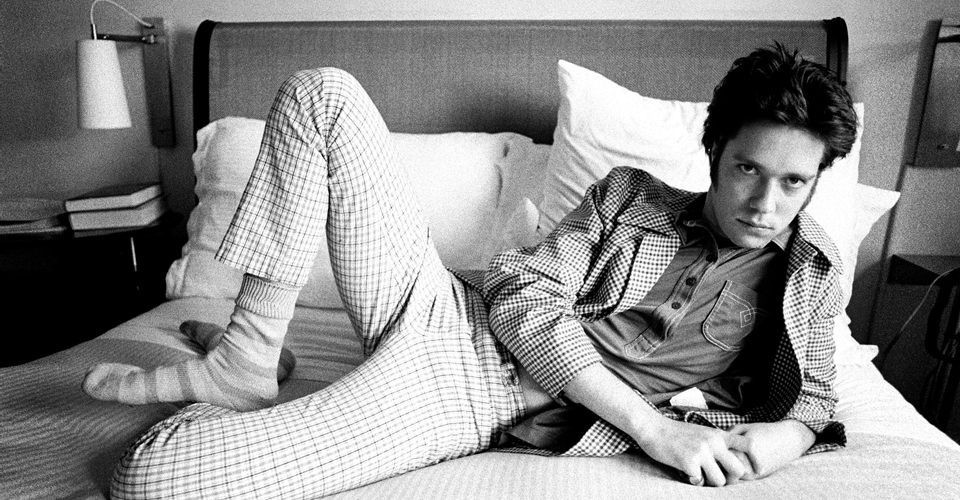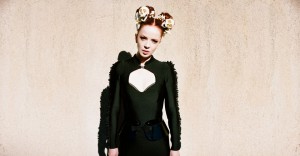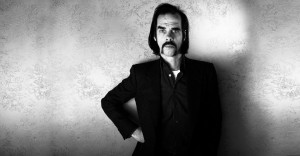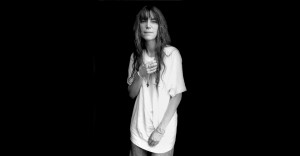Mr. Wainwright, when did you realize that your family was different from other families?
My favorite story is, when I was a kid and I was in Montreal there was this news broadcaster. My mother and I saw her at the grocery store and I was like, “Mom! That’s Mutsumi Takahashi from TV!” And my mom was like, “Darling, I am far more famous than she is.”
What was it like growing up in such a musical family?
I was born and bred and almost expected to be some kind of creature of the stage. I seemed to be obsessed with it at a very young age. I was a total ham. There is a funny story about my sister Martha and I. When Martha was born, my mother had a very beautiful poetic image of her whole life in front of her – she saw this fan of life and started crying when Martha was born. It was very moving. But the day before I was born my mother had bought a ham and then the next day I weighed the exact same as the ham. (Laughs) We sang a lot when we were young. And my first crib was a guitar case.
What would have happened if you weren’t musically talented?
Well, there are family members who do not have particular musical talent and it was very difficult for them at first. But our music is a whole operation. We all help each other, especially with the whole industry collapsing and not selling records. For example, we do Christmas shows together to collect money for my mother’s cancer foundation. That’s when the whole family comes together and if everybody were up there singing, there would be nobody to take care of the business part of things.
What was your relationship to your mother like?
My mother and I had a very typical mother-son romance. (Laughs) We were each other’s everything for many years and my sister had to navigate around that great love. In the beginning it was Kate and I against the rest of the world.
How did your parents react to your homosexuality?
My sexuality was a big problem for both my parents. They were not particularly advanced in that respect. Even though they had lots of gay friends and they were liberal and all of that, the minute it came out they didn’t know what to do.
It was a lot different back then, culturally.
Yes, part of that trauma I also attribute to the time. Because I came out in 1987, when I was very young. Nobody wanted to be gay in 1987. It was sort of a death sentence. But my parents could have done a lot better. My grandparents were actually much better. Especially my grandmother on my father’s side. She was the only one to call me up and say, “I heard you’re gay and it’s fine. Don’t worry about it. I’m there for you.” They were very helpful.
How long did it take until your parents grew to accept it?
My father is fine with it. My mother, oddly enough, I don’t know if she ever totally accepted it. But she certainly enjoyed all the perks: the trips to Paris, the nights at the opera, the clubs, the wine. We still spent most of our time together and she loved it every day. I think my mother wasn’t always so secure about her sexuality either. Sometimes that’s the issue, too. Do parents know and are they sure they’re straight?
Did she meet your husband?
She did. They met and they loved each other. I think that was her big peace flag. It was accepting my husband.
Perhaps, as a parent, she just wanted her kid to have as easy a life as possible.
Yeah. That was probably an element too. Being gay is so different now than it was when I was younger. It has become difficult to translate. A lot of it had to do with being counter-culture and unpredictable and dangerous. When I came out that’s what you were if you were gay. Now it’s not the same thing.
Was it different in the US and Europe?
Yes. In the US it’s very black and white. I was in New York most of the time and that was an island in the middle of a burning sea. And once you got out of that fortress it was totally different. A lot of my coming out was in London, because my father was living in England. And that was very rough. The English gay scene was a tough crowd. Very clandestine, brutal – and super sexy. (Laughs)
In London you once spent an infamous week that ended up getting you sent to rehab…
Yeah, I was partying a lot with Marianne Faithfull and my mother and I was at the tail end of what had been a 15-year flirtation with death.
You partied with your mother? Wasn’t she worried about you?
She wasn’t. She always told me, and everybody, “Rufus is a survivor and he wants to live and grow. I know that deep in my heart.” She was confident in that. And having her confidence behind me pointed me in the right direction.
Which in this case was rehab?
I ended up having to go to rehab, but that was great. I don’t preach any sort of doctrine. You know, whether one wants to be sober or not sober or whether alcohol is bad or good, I don’t get into that sort of conversation. But what I do think, that it is vitally important for everyone, whether you’re an alcoholic or not, to at least give yourself the chance to turn off the world and focus on yourself for a big chunk of time. Just to look at yourself, for a year or a few months. I was allowed to do that.
Return to Top

Short Profile
Name: Rufus McGarrigle Wainwright
DOB: 22 July 1973
Place of Birth: Rhinebeck, New York, USA
Occupation: Musician





















I love Rufus’ honesty and humour. Anything which gives us an insight into his early life really interests me. Love the photo too.